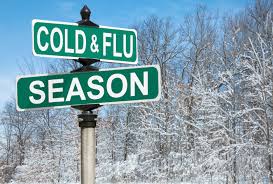As the chilly weather sweeps in, so does cold and flu season. With seniors (65+ years old), immune systems aren’t working the same as they used to, which means it’s crucial to keep a clean environment for them. The influenza virus can get nasty fast and, like most diseases, the elderly are at a higher risk of contracting the disease and facing complications with it. Each year, 8% of all Americans on average contract the flu, and even more are hospitalized due to it. The Centers for Disease Control and Prevention (CDC) have a few tips and healthy habits on keeping yourself and your loved ones safe from the flu and other illnesses.
#1 – Vaccinate: The best way to protect yourself from the flu is to get vaccinated against the flu each year if you can. Flu vaccines cause antibodies to develop in the body about two weeks after vaccination. These antibodies provide protection against infection with the viruses that are used to make the vaccine. Most of the flu vaccines you can get in America cover a couple different strains of the virus, from the yearly flu to H1N1 (remember that epidemic?) to some you may not have even heard about! This is the best option when it comes to protecting yourself and others from the flu.
#2 – Wash your hands: Washing your hands is another great way to prevent the cold, flu, and other bugs. It’s important to practice good handwashing techniques – just running your hands under the water for a second isn’t enough to kill the germs that live there. Make it a habit to wash your hands after using the restroom, after blowing your nose, before eating, & before and after treating a wound. There are more situations in which you should wash your hands, but this is just a short list of examples. For more situations where washing your hands might be necessary, visit https://www.cdc.gov/handwashing/when-how-handwashing.html.
#3 – Cover your coughs: When you sneeze or cough, think about how you cover your mouth. Do you sneeze into the palm of your hands, into the crook of your elbow, or do you just let it blow? If you’re coughing into your hands, think about what you’re touching directly afterward. From doorknobs to light switches, germs are going everywhere and spreading to others. According to lung.org, if you don’t cover your mouth at all, germs will launch into the air at speeds nearly 100 mph or 50 mph, depending on if you’re sneezing or coughing. That’s really fast! I know that both coughs and sneezes tend to sneak up on us, so try your best in the moment to make that quick reaction.
These are just some healthy habits we can all try to work on to keep ourselves and others safe from illnesses and in tip-top shape for the wintery days ahead! If you’re starting to feel sick, it’s always good to stay home and get some rest. This will benefit you and stop the spread of germs to other people. For more information on the flu and how you can help prevent sickness, visit https://www.cdc.gov/flu/prevent/actions-prevent-flu.htm.


